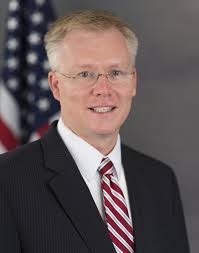Employees who want to know how miniscule their pay is compared to what their CEO gets would soon find the bitter truth following the Wednesday vote by Securities and Exchange Commission on the issue. In a 3-2 vote, the regulator agreed to adopt regulations that makes it mandatory for companies to disclose the huge pay gap between the CEO and workers' salaries.
However, Fortune reports that in a dissenting statement, SEC Republican Commissioner Michael Piwowar said the three commissioners who voted in favor of the disclosure gave in to "bullies."
The disclosure requirement is expected to help boost morale and job satisfaction in the corporate world in the U.S. But several studies also noted a backlash looms for companies with huge pay gaps.
When the CtW Investment Group analyzed S&P 500 companies that had high estimated CEO-worker pay ratios, it found that those firms had lower shareholder returns over a five-year period compared to firms with lower ratios. When Stanford University reviewed various research, it discovered reduced worker morale and job satisfaction in companies with huge pay gaps.
Because of partisanship, SEC officials took five years to implement the CEO-worker pay ratio disclosure law put in place by the Dodd-Frank financial reform in 2010. Besides the commissioners voting along party lines, the SEC also received pressure from corporate lobby groups and legislators to block the disclosure.
One such attempt was a published 2014 study by the U.S. Chamber of Commerce claiming that it would cost large companies an average of $311,000 and 1,825 hours to compute the median pay of workers. But more than 287,400 comment letters were sent to the SEC supporting the disclosure.
Piwowar warns fellow commissioners that acquiescing to bullies "only gives them more ammunition," in his dissenting statement
The GOP commissioner reminds that as early as 2010, he opposed the pay ratio disclosure rule because it would harm investors, affect competition negatively, promote inefficiencies and restrict capital formation. Despite the 3-2 vote, Piwowar ends with the hope that SEC leaders "will have the courage to stand up to the bullies and wrest back control of our agenda."



























